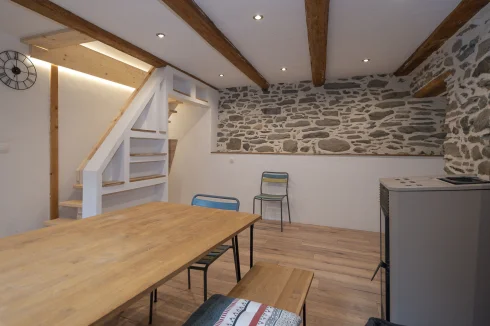French School Calendar Reforms for 2014
Tuesday 05 August 2014
France has finally embraced the five day school week for nursery and primary school children. Well, almost.
The reform of the school calendar has been a hot topic of debate in France for the past three years, with the government intent on bringing about several changes to the primary school calendar against the wishes of a large number of local councils, some parents groups and the teaching unions.
Although there have been some ideological objections, most of rancour has been about money, with the councils in particular concerned about the extra costs of the changes.
The teacher unions also took strike action over the manner in which new extra-curricular activities were to be programmed into the calendar, which meant that, in practice, there would be no reduction in the time at school for the pupils.
The battle that has been waged has cost the previous Minister of Education, Vincent Peillon, his job, but his successor Benoît Hamon, now seems to have won over most dissenting voices by a process of divide and rule.
As a result, it looks as though most councils will introduce the new calendar in September.
The aim of the changes is to reduce the length of the primary day by abolishing the four days school week and making classes mandatory five days a week.
France distinguishes itself amongst education systems in Europe by having the longest primary school day and the shortest school year.
Children in primary school normally start their day at 0830, finishing at 1630, during which there are six hours of classes, with additional hours for those having difficulties.
Since 2008 these classes take place over four days of the week, with a no classes on Wednesday, reserved for extra-curricular social and sporting activities outside of the school.
Over the year primary school children attend school for 140 days over 36 weeks, well short of the number of schooling days in other countries of Europe due mainly to long summer holidays in France. In the UK the minimum number of days is 190, as is similarly the case in many other countries in Europe.
The OECD has previously been very critical of the French school calendar, which they considered detrimental to the proper education of children.
Many parents continue to believe that a break on Wednesday is beneficial for the child and that putting them into school for a half day on a Wednesday also causes a great deal of inconvenience and cost for working parents.
The changes now mean that children will attend school on Wednesday mornings, with the length of each school day reduced. However, the total number of hours of classes each week will remain at 24 hours.
With the shorter hours of classes the government has also stated that the schools and councils must organise additional extra-curricular activities to broaden the experience of the children, and to ensure all were property looked after until the end of the school day, normally at 1630.
So in practice, although the amount of time allocated for classwork each day will be less, because of the introduction of more extra-curricular activities in schools, the length of time children are at school will remain the same.
Indeed, as might be expected, the level of prescription goes further, for the regulations also require that a full-day of classes cannot be longer than 5 hours 30 minutes, that a half-day cannot be longer than 3 hours of classes, and that the minimum period for lunch must be 1 hour 30 minutes.
The government have left it open for local councils to opt for Saturday morning instead of Wednesday, if there are particular local circumstances that make this a better option.
The government backed off increasing the length of the school year by two weeks, which remains at 36 weeks, although it is possible this will come back on the agenda at a future date. That may prove an even tougher challenge, for the powerful teachers unions are strongly opposed to any reduction in their holiday periods.
Some local councils are continuing to refuse to implement the changes, but the government estimates that around 94% of councils have acquiesced. It is already in place in around 17% of councils who decided to go ahead with it in September 2013.
The government have put in place a website where parents can find out the school calendar for their children at Nouveau Horaires.
Back To: French News
Thank you for showing an interest in our News section.
Our News section is no longer being published although our catalogue of articles remains in place.
If you found our News useful, please have a look at France Insider, our subscription based News service with in-depth analysis, or our authoritative Guides to France.
If you require advice and assistance with the purchase of French property and moving to France, then take a look at the France Insider Property Clinic.





